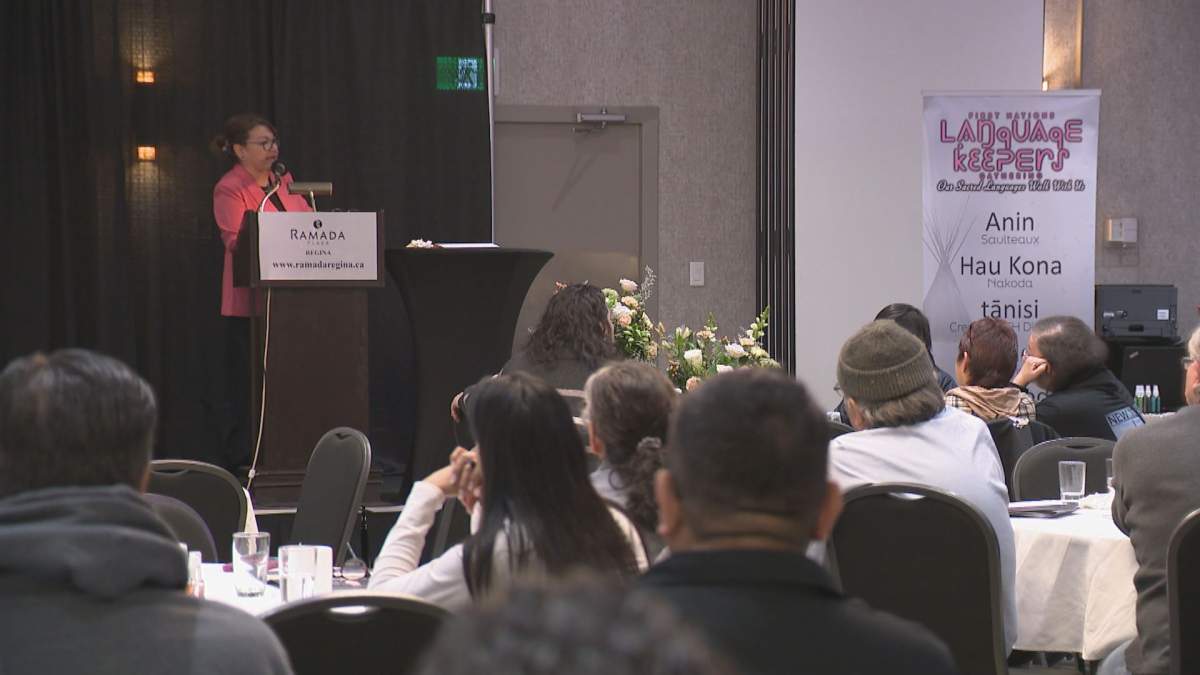As Indigenous language speakers, elders, knowledge keepers and educators gathered for a two-day event, concerns and ideas were shared on the future of Indigenous languages in Saskatchewan.

“The languages are really suffering right now,” said Jessie Sylvestre, Saskatchewan Indigenous Cultural Centre (SICC) president. “We feel the need of what needs to happen to reawaken our languages that are in crisis right now within our nations.”
SICC hosts this annual event but it’s the first time it has been held in Regina and this year marks the first gathering since before the COVID-19 pandemic.
“The thing that we’re finding is that people are really wanting to get together and see what we can do to reawaken (Indigenous languages),” Sylvestre said. “One of the teaching methods that are quickly being accepted is the land-based (education).”
Tanya McCallum was one of the keynote speakers for the gathering who focused on land-based education. McCallum said land-based education is not all about outdoor education but rather learning about Indigenous history and understanding the Indigenous ways of doing things.
“If you give them the background information of why you’re going out on an excursion … by the time they’re done that last lesson, they’ll be pumped to go out and try on those notions,” she said. “So, it’s all about the history and having an objective when you’re going out on the land.”

Get breaking National news
McCallum hopes educators who attended the gathering can take what they learned on how to include Indigenous languages in their curriculum for either on- or off-reserve schools.
“We need to localize those curriculums,” she said. “Our students need to know who they are as Indigenous people … because if we don’t teach the history, then history will repeat itself.”
Sylvestre said she is seeing there are many Indigenous people who are becoming master’s students and educators in Indigenous languages. Aside from land-based education in school curriculums, Sylvestre said those Indigenous language educators can incorporate the languages in any subject area, such as a math or art class.
“There is an awareness now and so people are really responding and very being receptive to what needs to happen in the classroom in terms of the resurgence of who we are as Indigenous Peoples and taking pride in our identity (and) in our languages also,” she said.
The fourth vice-chief of the Federation of Sovereign Indigenous Nations (FSIN), Craig McCallum, said more needs to be done to continue revitalizing Indigenous languages in the province.
“There is curriculum out there that is in the provincial system, but there aren’t enough teachers…. We need to work to continue to advocate for more funding to create more teachers,” he said. “The main one that comes to mind is the Nakota language. There aren’t a lot of fluent speakers left — I think it’s less than a handful.”
Preserving, revitalizing and strengthening Indigenous languages in Canada is one of the Truth and Reconciliation Commission’s Calls to Action.








Comments